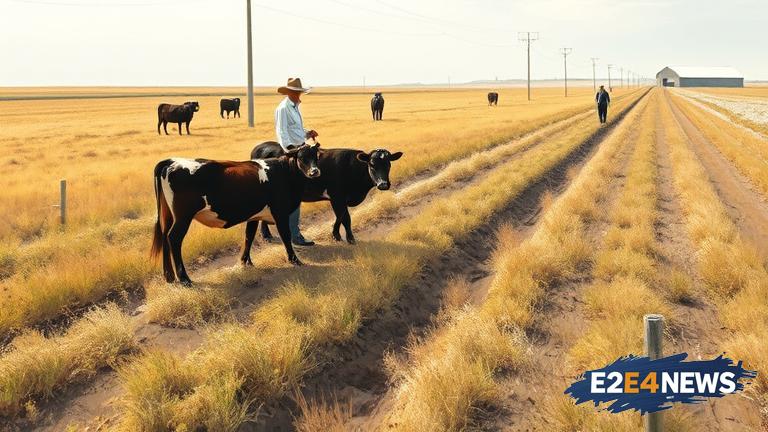The recent rainfall in southwest Saskatchewan has been met with a mix of emotions from farmers in the region. While some have welcomed the precipitation, others have expressed disappointment and frustration, as the rain has come too late to save their drought-stricken crops. The drought, which has been ongoing for several months, has taken a devastating toll on the agricultural industry in the region. Many farmers have reported significant losses, with some estimating that their crop yields will be reduced by as much as 50%. The lack of moisture has also had a profound impact on the region’s livestock, with many ranchers struggling to find adequate feed and water for their animals. Despite the rainfall, the soil in many areas remains dry and cracked, and it will likely take several more inches of precipitation to replenish the moisture levels. The Saskatchewan government has announced plans to provide financial assistance to farmers affected by the drought, but many are skeptical about the effectiveness of these measures. Some farmers have called for more comprehensive support, including subsidies for irrigation systems and other drought-mitigation technologies. The drought has also had a significant impact on the local economy, with many businesses that rely on agriculture struggling to stay afloat. The situation has been exacerbated by the COVID-19 pandemic, which has disrupted supply chains and made it difficult for farmers to access the resources they need. In response to the crisis, a number of community organizations have launched fundraising campaigns to support affected farmers. However, more needs to be done to address the root causes of the drought and to support the long-term sustainability of the agricultural industry in the region. The Saskatchewan government has announced plans to conduct a thorough review of the province’s drought mitigation strategies, but it remains to be seen whether these efforts will be sufficient to address the scale and complexity of the problem. As the situation continues to unfold, farmers and ranchers in southwest Saskatchewan remain anxious about the future, and are calling for more urgent and effective action to address the drought. The impact of the drought on the region’s ecosystem has also been significant, with many wildlife species struggling to survive in the parched conditions. The drought has also highlighted the need for more sustainable and resilient agricultural practices, and has sparked a renewed debate about the role of climate change in exacerbating drought conditions. Ultimately, the drought in southwest Saskatchewan serves as a stark reminder of the vulnerability of the agricultural industry to environmental stressors, and the need for more comprehensive and proactive strategies to support farmers and ranchers in the face of uncertainty.
